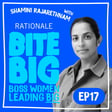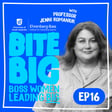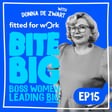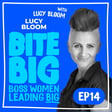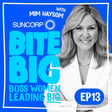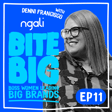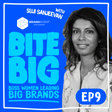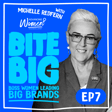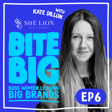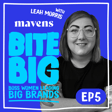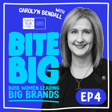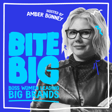
Amber Bites Big with Ally Doubé - Head of Marketing @Uber & Uber Eats – Japan
Coming to you from Tokyo Japan, Amber Bonney will be co-hosting Bite Big's first episode with boss woman and innovative powerhouse Ally Doubé, Head of Marketing for Uber & Uber Eats Japan.
Inspired by Amber's own Mantra, 'bite big and chew like hell', in this episode we will delve into what Ally's own personal mantra is, and what it means, “Cut through the bullshit, make really cool shit, live for the real shit and help people find “it”!” We discuss how she coined it, how it helps set her focus and energy, and how it helped define her true north star.
These boss women delve deep into what elements have impacted their careers and have helped define who they are today, the importance of having balance and discipline in their lives and what expectations they and others place on them, as Ally says "The person who puts the most pressure on me is myself". They discuss how important it is to help raise others up, to help others find their own personal mantra's that will help guide and live their lives by and how one can only really grow through imperfection.
Tune in as Ally shares with us what her version of 'biting big' is, her belief in "faking it until you make it" and what her biggest boss move is to date!
This episode is dedicated to two great boss women in Ally's life, her mother, Janet, who she lost to breast cancer when Ally was just 28 years old, and Natalyia Senytsya who is the founder of Angels Care a Ukrainian charity that provides support for families experiencing the loss of a baby. A donation of $500 has been made to both Angels Care and National Breast Cancer Foundation on behalf of Ally.
If you would like to know more about our host Amber Bonney her business The Edison Agency or co-host Ally Doubé you can connect and follow these boss women via the socials links below!
Ally's Linkedin
The Edison Agency's LinkedIn
The Edison Agency's Instagram
Amber's Instagram
Amber's LinkedIn
National Breast Cancer Foundation
Angels Care

